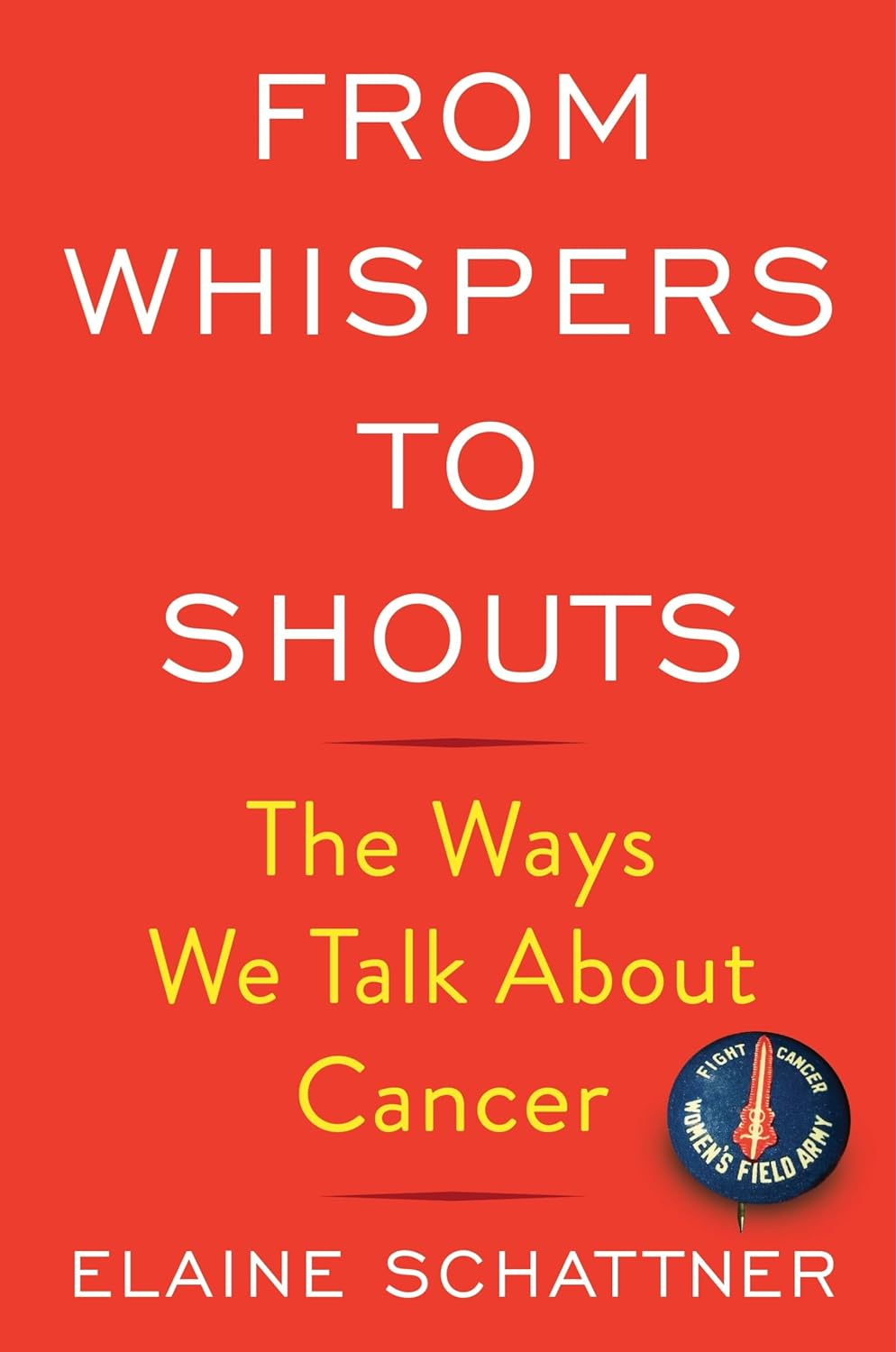What comes after awareness? The final section of From Whispers to Shouts deals with the present and future of cancer. Schattner emphasizes the value of education in helping people understand cancer and treatment options. A breast cancer survivor herself, she writes that modern, advanced treatment shouldn’t be “a luxury.” She argues that “we provide best available remedies to individuals with all kinds of illnesses—diabetes, high blood pressure, depression, HIV and AIDS, arthritis, epilepsy, most everything for which treatments are available”; cancer should be no different.
It’s true that the cost of cancer medications outstrips the cost of many other medications, and that treatment is particularly financially intensive for patients. But many Americans with the other conditions Schattner names would be surprised to learn that they have access to the “best available remedies.” As a former practicing physician, Schattner must know that diabetics die from trying to ration their insulin, and that patients are still often forced to pay for HIV prevention medications that their insurance is supposed to cover in full. A complete understanding of what American health care does to cancer patients requires acknowledging that the problem is not just affecting them; the system is sick at its roots.
It’s a system predicated on the notion that every individual is ultimately responsible for their own health and wellbeing, and therefore also the costs of maintaining that health. We have public programs that cover roughly 35 percent of the country, mainly Medicare for the old and Medicaid for the poor, plus some more puzzlingly specific categories of those allowed help—you can sometimes qualify for Medicare on the basis of having End-Stage Renal Disease or ALS, for example, but never cancer or diabetes. These programs can be hard to access and navigate, however. Medicare can still have extremely high costs, and Medicaid patients are kicked off their plans for administrative bullshit all the time. There are no guarantees.
